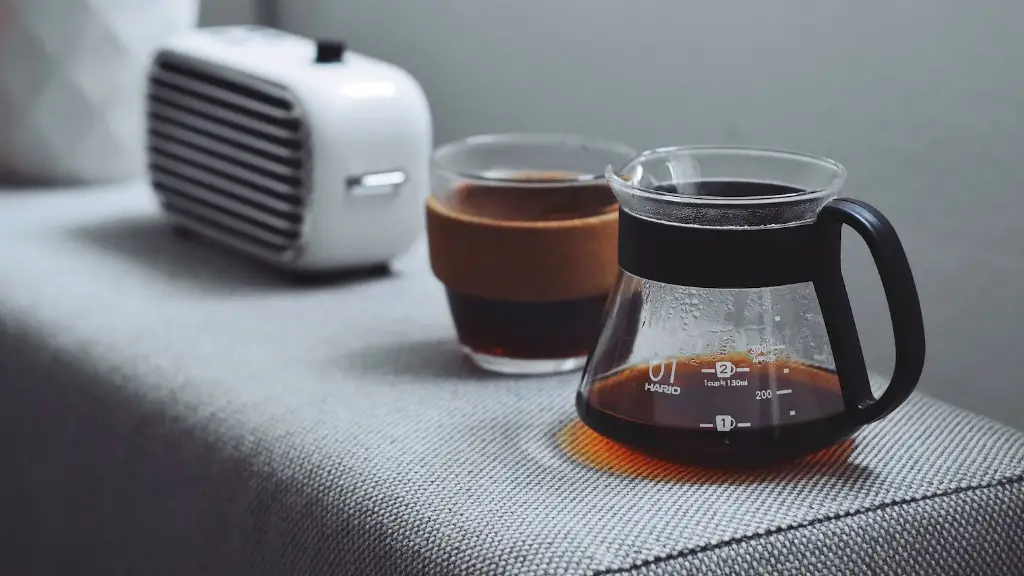An Introduction to the Issue
It’s an age-old problem. You love coffee – its aroma, its taste, its gorgeous pick-me-up – but when you drink it, suddenly your armpits start to sweat. It’s an annoying yet relatively common phenomenon, but why does it happen?
The most popular explanation is that it’s due to the caffeine content in the coffee. Caffeine is a stimulant, and the effect it has on our body can include increasing our body temperature, which in turn can lead to sweating. That being said, there’s research that casts doubt on this being the only explanation.
The Potential Role of Other Ingredients
Coffee does contain a lot of other ingredients, and as much as caffeine gets a lot of the blame, there is some evidence to suggest that other components could also be causing the reaction.
One such ingredient is theobromine, a bitter alkaloid found in cocoa beans and coffee beans, as well as tea leaves and other plants. It’s often associated with calming and soothing effects, but it can also act as a stimulant. Studies have shown that it can affect the body’s endocrine system, leading to increased sweating.
Another possible contributor is chlorogenic acid, which is found in coffee beans. It’s believed to be an antioxidant and can have an effect on our serotonin levels, which can in turn lead to increased sweating.
The Role of Diet and Excess Caffeine Consumption
We can also look at our overall dietary habits and level of caffeine consumption. Studies have shown that those who usually have a diet high in caffeine are more likely to have increased sweating, especially when they consume caffeine-containing drinks in high amounts.
As well as that, those who consume more alcohol or eat more spicy foods, which can act as stimulants, can also experience increased sweating. High levels of stress can also lead to increased sweating, so in the context of coffee, it’s possible that the combination of stress and caffeine could be causing an increase in sweating, too.
The Link to Genes and Hormones
It’s also possible that the reaction to coffee could be genetic, with research suggesting that some people are simply more sensitive to caffeine than others. It’s also possible that hormones could be to blame, as hormones such as testosterone and estrogen can influence one’s sensitivity to caffeine.
Lifestyle Changes to Help Reduce Sweating
The good news is that if you’re experiencing excessive sweating in response to caffeine or any other stimulant, there are some lifestyle adjustments you can make that may help reduce the sweating.
The most obvious change is to reduce how much caffeine you’re consuming. If you’re not ready to give up coffee completely then you could switch to decaffeinated coffee or switch to a lower-caffeine tea or herbal tea like chamomile or ginger.
Eating a balanced diet and getting regular exercise can also help reduce stress levels, as can using relaxation techniques such as deep breathing and mindfulness. If lifestyle changes don’t do the trick, then it could be worth speaking to a doctor about using medications that can help reduce sweating.
Natural Home Remedies for Sweating
If medications are not an option, then it’s also possible to use natural home remedies to help reduce sweating, such as essential oils and herbs. Essential oils such as lavender, tea tree and peppermint oil can be used to help limit sweating, while herbs such as sage, lemon balm and chamomile can help to reduce anxiety and stress levels.
As well as that, it can also help to keep your skin moisturised and use antiperspirants or deodorants to help reduce sweat odour. There are also some simple lifestyle changes that can help, such as wearing loose clothing and avoiding certain foods such as caffeine, alcohol and spicy foods that can trigger the sweating response.
Do Certain Clothing Attire Make You Sweat More?
When it comes to clothing, tighter clothing can restrict air flow and increase sweating. Wearing breathable fabrics such as cotton and linen can help, as can wearing natural fibres such as wool or silk. It can also help to keep your home and workspace cool, as well as avoiding doing activities such as exercising or going for a long walk when you know the temperature will be high.
Finally, it can help to pay attention to your body’s temperature, as if you’re feeling too hot then it could be a sign that your body is working to cool itself down – hence the sweating. If this is the case, take a break and find somewhere cooler to help cool your body down.
What About Caffeine-Free Alternatives?
If all else fails and you’re still concerned about the effect of caffeine on your body, then there are plenty of caffeine-free alternatives out there that can still provide a delicious and flavoursome pick-me-up. Options such as herbal teas, kombucha, low-sugar smoothies and tonics can all provide a delightful alternative to regular coffee.
At the end of the day, everybody is different and it’s all about experimenting to find out what works best for you. Hopefully, this article has given you some food for thought, and a better understanding of why your armpits might be sweating when you drink a cup of coffee.




